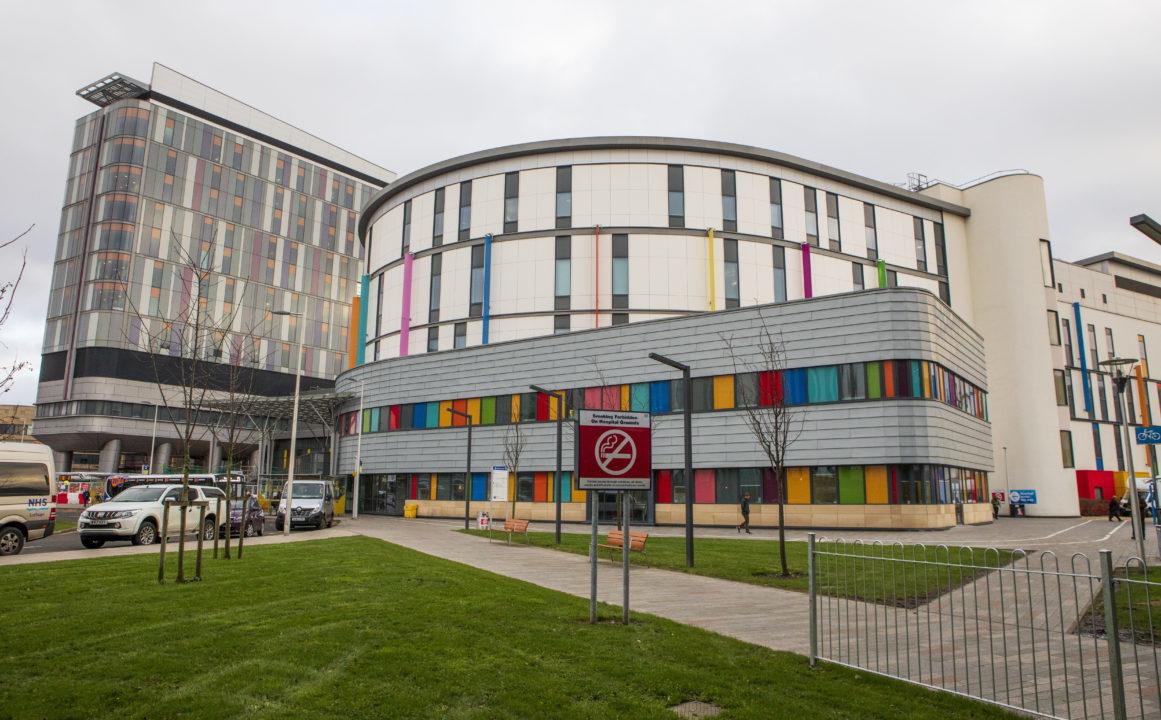NHS Greater Glasgow and Clyde will be placed under increased scrutiny after an infections scandal at a flagship hospital campus.
The entire health board has now been put at stage four of the NHS Board Performance Escalation Framework.
In November, the board was placed at stage four over ongoing issues relating to infection prevention, management and control at the Queen Elizabeth University Hospital (QEUH) and the Royal Hospital for Children.
A decision has now been taken to place the full board at that stage.
The health board has been dealing with a number of scandals around the QEUH after a series of infections and death of patients.
Concerns about the water supply on the campus were raised after it emerged ten-year-old cancer patient Milly Main died at the children’s hospital on the site after contracting an infection in August 2017.
Her parents have called for a fatal accident inquiry into her death.
A five-stage scale is used in Scotland to show the level of oversight for stricken health boards.
A stage four ranking is given to a board where there are “significant risks to delivery, quality, financial performance or safety” with “senior level external support required”.
Principal areas of support concentrating on scheduled care, unscheduled care, primary care out of hours, finance and culture and leadership, will all be assessed as part of the latest escalation.
To facilitate support for the board, NHS Lanarkshire chief executive Calum Campbell has been appointed as a turnaround director.
Health secretary Jeane Freeman said the move would provide an increased level of scrutiny and intervention at the board.
“All of us, rightly, have high expectations of our NHS and I’m focused on improving performance and delivery across the system in order to provide the best care possible for the people of Scotland,” she said.
“In order to provide additional direction and support to NHS Greater Glasgow and Clyde I have taken the decision to escalate the board as a whole to stage four of the Performance Escalation Framework.
“Calum Campbell as turnaround director will provide an increased level of scrutiny and intervention.”
As well as the action taken for the board in Glasgow, a number of senior management changes were also made at NHS Highland and NHS Orkney to increase capacity.
Iain Stewart, chief executive of NHS Highland, will take up an executive role within NHS Orkney ahead of taking on the role of chief executive after the phased retirement of current chief executive Gerry O’Brien.
Paul Hawkins, chief executive of NHS Fife, will be seconded to NHS Highland as interim chief executive.
Ms Freeman said the changes would help “enhance leadership capacity” and better align skills and experience across NHS Scotland.
In response, Monica Lennon, Scottish Labour health spokesperson, claimed the move “reads like a game of musical chairs”.
She added: “Half of Scotland’s health boards are in ‘special measures’ and moving around senior executives is not a credible response.
“Tough action was taken in NHS Tayside over finance, which led to a new leadership team being put in place but not a single person has been asked to leave NHS Greater Glasgow and Clyde, despite tragic incidents and a breakdown in trust between patients, families, staff and the board.
“What will it take for Jeane Freeman to clear out the rot within NHSGGC, rather than tinkering around the edges?
“Parachuting in senior people, like the chief executive of NHS Lanarkshire who leaves behind a laundry list of problems in his own patch, tells us everything we need to know about this SNP government.”
The Scottish Conservatives have called for Ms Freeman to resign.
Miles Briggs, shadow health secretary, said: “Ms Freeman’s desperate attempt to reshuffle her way out of an NHS crisis shows just how out of ideas she is.
“Half of our health boards are now in ‘special measures’ and shifting personnel around will not address the widespread and systemic issues that health boards have long been dealing with.
“The sick kids hospital in Edinburgh still hasn’t opened, and the Queen Elizabeth University Hospital continues to deal with the repercussions of the recent scandals involving infections and contamination.
“The SNP’s catastrophic mismanagement of these projects and the wider health service are all on display.
“Ms Freeman demonstrated a profound lack of judgement when she kept details of a deceased child secret, she continues to demonstrate that same lack of judgement if this is the best she can do.
“She should now resign and let someone else try to improve our NHS for the benefit of patients and the extremely hardworking NHS staff doing their best in this broken system.”
Jane Grant, chief executive at NHS Greater Glasgow and Clyde, said: “Our board and senior leadership team are entirely focused on delivering safe, person-centred care for the people of Greater Glasgow and Clyde.
“We are confident that we will be able to deliver and sustain an improved performance with the additional support announced by the cabinet secretary today.
“We welcome the opportunity to work with Calum Campbell to deliver improvements in scheduled care, unscheduled care, out of hours, finance and culture and leadership.”
Follow STV News on WhatsApp
Scan the QR code on your mobile device for all the latest news from around the country


 STV News
STV News

























